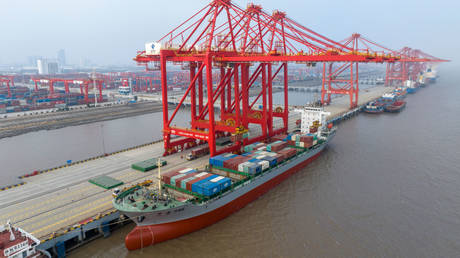China retaliates in trade dispute, imposes tariffs on Canadian products
Beijing has implemented new taxes on Canadian food and agriculture in response to Ottawa's tariffs on Chinese electric vehicles, steel, and aluminum.

The sanctions include a hefty 100% duty on Canadian rapeseed oil, oil cakes, and peas. Furthermore, a 25% tariff will apply to Canadian aquatic products and pork, dealing a considerable blow to exporters in these sectors.
In August 2024, Canadian Prime Minister Justin Trudeau enacted a 100% tariff on Chinese electric vehicles and a 25% duty on imports of Chinese steel and aluminum, citing state-directed overcapacity from Beijing.
The measures, rolled out in October, were in line with similar actions taken by the United States and the European Union, both of which have also levied tariffs on Chinese-manufactured electric vehicles.
The Chinese Ministry of Commerce has denounced Canada's actions as a breach of World Trade Organization regulations, characterizing it as “protectionism that severely harms China’s legitimate rights and interests.”
China ranks as Canada’s second-largest trading partner, following the United States. This latest development contributes to escalating global trade tensions, with the US, China, Canada, and Mexico all having enacted various rounds of tariffs against one another over recent years.
Trade disputes have been a longstanding issue, largely driven by tariffs, trade discrepancies, and geopolitical conflicts.
Previously, former US President Donald Trump implemented broad tariffs targeting Mexico, Canada, and China, prompting swift retaliatory measures. His administration imposed a 25% tax on imports from Mexico and Canada while raising tariffs on Chinese goods to 20%.
In a congressional address on Tuesday, Trump defended these tariffs by pointing to trade deficits and concerns over fentanyl trafficking. In retaliation, Trudeau committed to imposing tariffs on over $100 billion of US goods within a three-week timeframe, whereas Beijing responded with duties of up to 15% on US agricultural exports and broadened restrictions on American firms.
Frederick R Cook for TROIB News
Find more stories on Business, Economy and Finance in TROIB business












